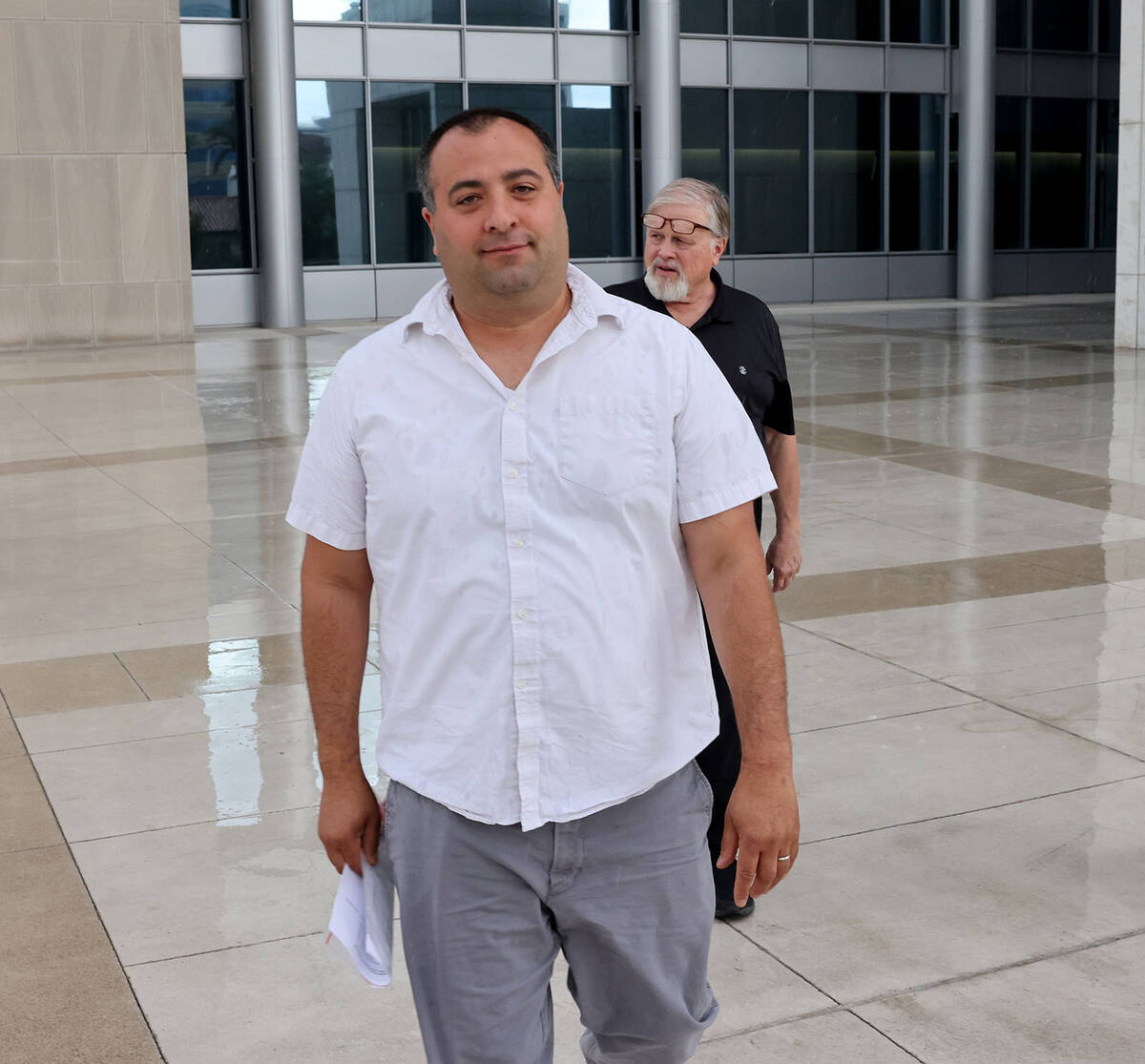A federal judge dismissed four of the six charges against a Nye County sheriff’s captain accused of abusing his power in arresting a power company executive, but federal prosecutors are asking Judge Andrew P. Gordon to reconsider his ruling.
David Boruchowitz was indicted in 2023 by a federal grand jury on allegations of setting up Valley Electric Association CEO Angela Evans for personal gain. The charges came after a Las Vegas Review-Journal investigation raised questions about Boruchowitz’s actions in the case and whether he was trying to get a paid position on the VEA board.
In December, Gordon dismissed wire fraud charges that alleged Boruchowitz used news releases posted to Facebook to advance the scheme to obtain “money and property by means of materially false and fraudulent pretenses.”
Boruchowitz’s attorneys argued that he did not obtain money or property through the arrest, but prosecutors contended that Boruchowitz’s arrest deprived Evans of a job.
Last month, Gordon ruled that the indictment “does not allege facts demonstrating that Boruchowitz intended to obtain Evans’ job” and “does not allege facts demonstrating that Boruchowitz intended to cheat the same person or persons that he deceived.”
On Jan. 3, prosecutors filed a motion arguing that Gordon improperly dismissed the charges and asking him to reconsider his decision.
“A court cannot dismiss a facially valid indictment because it believes the evidence may be insufficient to support a conviction,” prosecutors wrote in the request to reconsider. “An indictment which tracks the words of the statute charging the offense is sufficient so long as the words unambiguously set forth all elements necessary to constitute the offense.”
Boruchowitz still faces charges of perjury and deprivation of rights under color of the law.
Defense attorney Crane Pomerantz said he agreed with Gordon’s ruling and believes Boruchowitz is innocent of all the charges against him.
“I believe this case was overcharged from the beginning,” he said. “This case is about the arrest and the wire fraud counts go far afield about whether this is a valid arrest or not.”
Prosecutors on the case, Steven Myhre and Justin Washburne, did not respond to requests for comment, and spokeswoman Trisha Young emailed declining an interview. Her email also noted that the attorneys for both sides are still filing motions on the prosecution’s reconsideration request, which are all due in the next week.
If it results in a conviction, the perjury charge carries a maximum sentence of five years, and deprivation of rights under color of the law is a misdemeanor that carries a maximum one-year sentence, while the judge could sentence a defendant to up to 20 years on each of the wire fraud counts.
Raid and arrest
In 2019, Boruchowitz and his deputies raided the Valley Electric Association offices in Pahrump. They later arrested Evans on allegations that she used about $80,000 in VEA resources to move a power pole off her property. But property records show that Evans didn’t own the property when the association staff moved the pole, and Nye County District Attorney Chris Arabia declined to file charges.
After her arrest, Evans lost her job and sued the county, settling for $400,000 last year. She also settled with Valley Electric for an undisclosed amount.
Evans’ attorney in the lawsuit against Nye County, Andre Lagomarsino, confirmed the county settlement amount but declined to comment on the dismissed charges.
The Review-Journal investigation also exposed how Boruchowitz was previously investigated by state and federal agents for holding porn matinees at the sheriff’s department and having inappropriate relationships with parolees. Both of those investigations were turned over to then-Sheriff Sharon Wehrly, who did not impose significant punishment on Boruchowitz but instead repeatedly promoted him. Boruchowitz supported Wehrly in her political campaigns.
Wehrly lost her re-election bid after the Review-Journal story ran, and she died in 2023 after a battle with cancer.
Boruchowitz’s trial, which has been repeatedly rescheduled, is set to start March 24.
Contact Arthur Kane at [email protected] and follow @ArthurMKane on Twitter. Kane is editor of the Review-Journal’s investigative team, focusing on reporting that holds leaders and agencies accountable and exposes wrongdoing.



